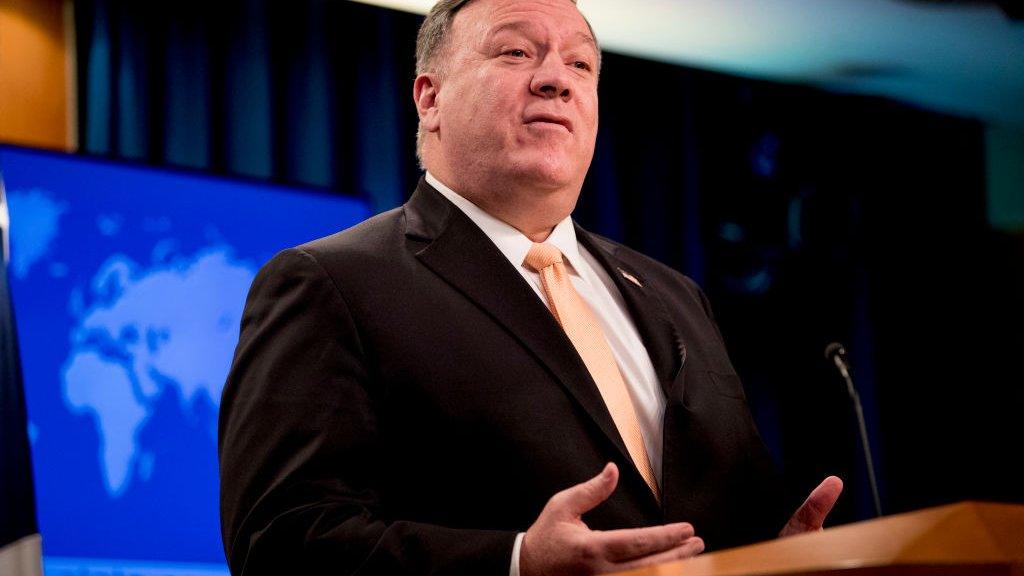Venezuela crisis: Anger over shortages triggers protests
- Published
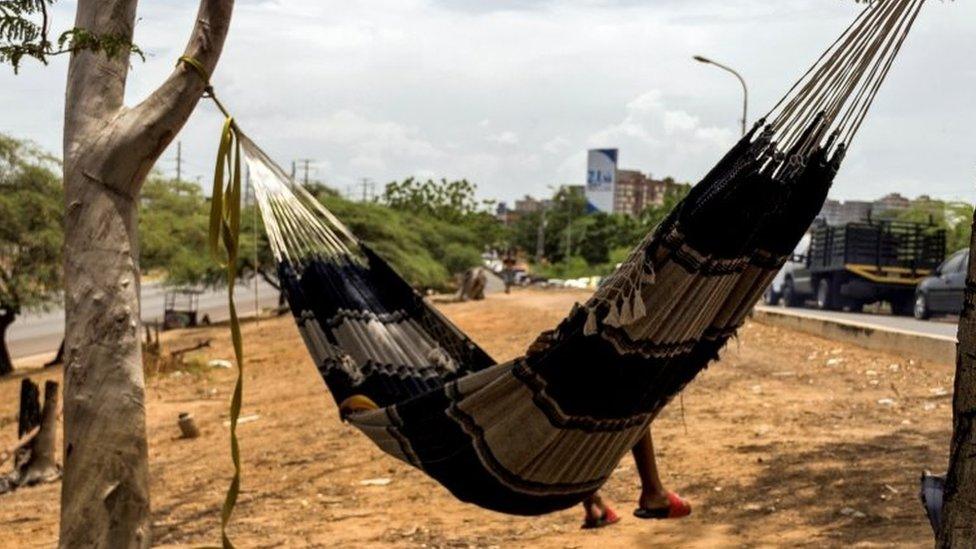
As Venezuelans often have to spend days queuing for petrol, some try to make the wait a little more comfortable
Hundreds of protests have erupted across Venezuela in the past few days as anger mounts over frequent power cuts and shortages of fuel and drinking water, a non-governmental organisation monitoring social conflict says.
The protests started in Yaracuy but have since spread to other states in the country's interior.
Residents accuse the government of neglecting the interior.
They say it diverts supplies to Caracas, where the government is based.
What are the protests about?
The grievances protesters cited as their reasons for taking to the streets were many, and included frequent power cuts and long spells in which the water supply to homes is cut, as well as shortages of petrol and gas used for cooking.
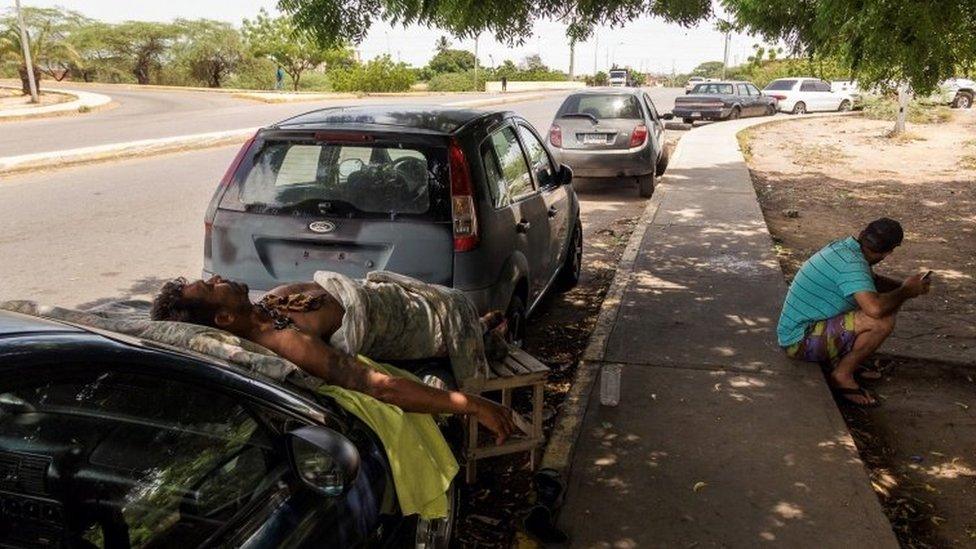
People kill time waiting next to their cars as they queue for petrol
Many said that basic services in their community had ceased to function.
They were joined in some places by teachers demanding fair salaries and patients protesting about the poor conditions in the country's hospitals.
Haven't there been shortages for years?
Yes, Venezuelans have been struggling with power cuts, poor water supply and shortages of petrol, cooking gas and basic hygiene and food items for years.
But the coronavirus pandemic has made some of these shortages more acute.
Coronavirus: Venezuelans struggling with fuel shortage
Lockdowns introduced to curb the spread of coronavirus have forced Venezuelans to stay at home more, increasing the demand for already scarce supplies of propane gas.
If frequent cuts to the water supply caused anger before, it turned into outrage as Venezuelans could not wash their hands in the midst of the epidemic.
Many poorer Venezuelans live hand-to-mouth and the rolling lockdowns imposed by the government are making it even harder for many people to earn enough to feed themselves.
A study released by the United Nations World Food Programme in February - before the first case of the virus was reported in Venezuela - suggested that one in three Venezuelans were struggling to get enough food to meet the minimum nutrition requirements.
The pandemic and the lockdowns imposed to control it are likely to have further increased the numbers of those struggling to feed their families.
Why are there shortages in the first place?
Venezuela has the largest oil reserves in the world but a combination of underinvestment and mismanagement by the Venezuelan government followed more recently by tough US sanctions on Venezuela's oil sector have led to the collapse of its oil industry.
With its production almost at a standstill, Venezuela has had to turn to importing petrol to meet its internal demands.
But US sanctions have made importing petrol extremely difficult for the Venezuelan government.
It has turned to another US foe, Iran, for help. But while five Iranian fuel tankers arrived at Venezuelan ports in May, the US seized more than a million barrels of Venezuelan-bound fuel in August.
Venezuela's acute petrol shortages have also affected other supplies. With lorries' tanks empty, vegetables have been rotting in the fields as farmers do not have a way to get them to market, further exacerbating food shortages.
What reaction has there been?
Non-governmental organisations and local media have reported that the security forces responded to many of the protests by firing tear gas and rubber bullets.
The Venezuelan Observatory of Social Conflict said dozens of people had been arrested. Rights group Provea said "the fair demands of the population were met with repression".
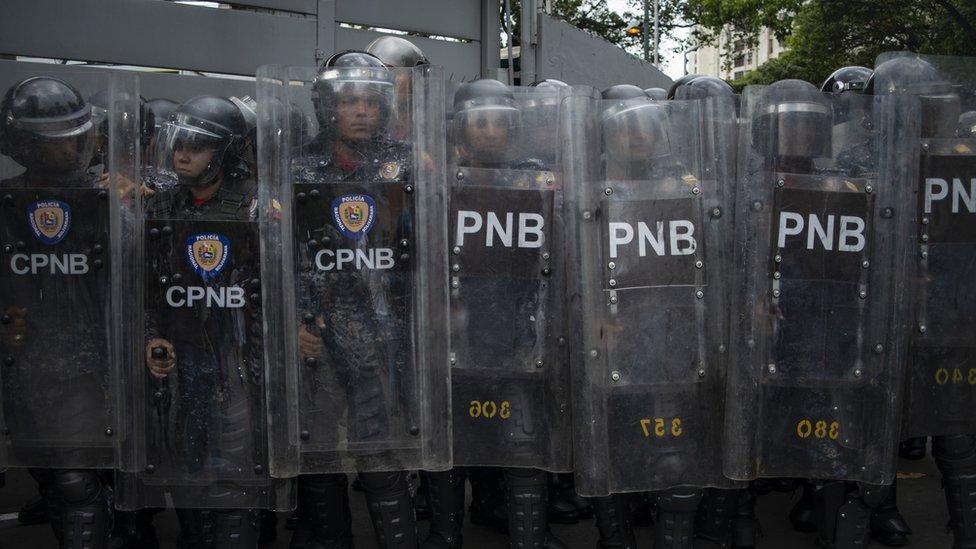
The security forces have clashed with anti-government protesters in the past (file photo)
Repression against anti-government protesters by the security forces is not unusual and has been widely documented by the United Nations in a report published earlier this month by the Independent International Fact-Finding Mission on Venezuela, external.
The investigators found cases of killings, torture, violence and disappearances against government critics.
The government has not mentioned the recent protests but on Tuesday President Nicolás Maduro acknowledged for the first time the extent of the collapse of Venezuela's oil sector.
He said that $30bn (£23.4bn) had been lost each year since 2015, a loss which amounted to 99% of Venezuela's foreign exchange revenues.
Mr Maduro did not mention the protests and blamed the country's dire economic state on the "criminal blockade imposed on Venezuela by imperialism".
He also announced a new "anti-blockade law" which he said would "kickstart Venezuela's economic motors" but revealed little detail about it.
- Published16 September 2020
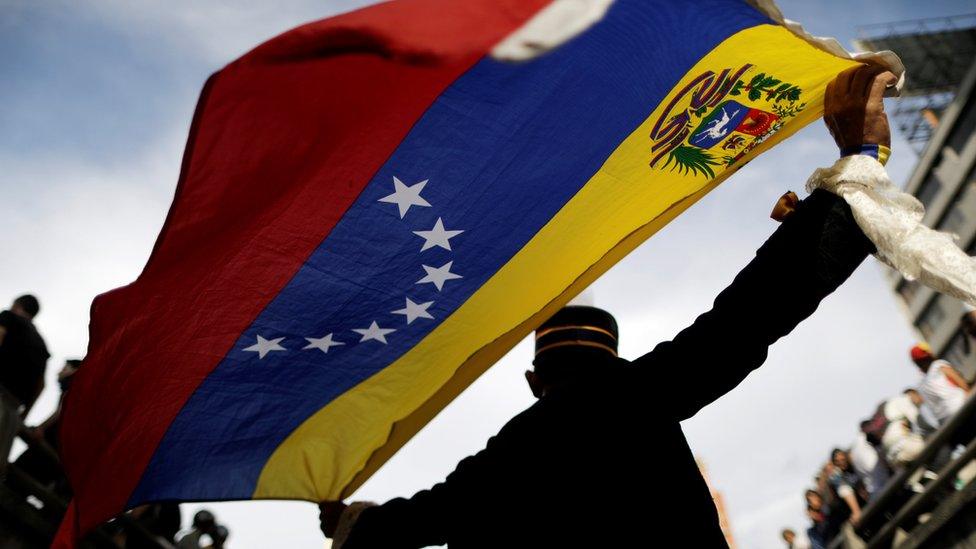
- Published14 August 2020
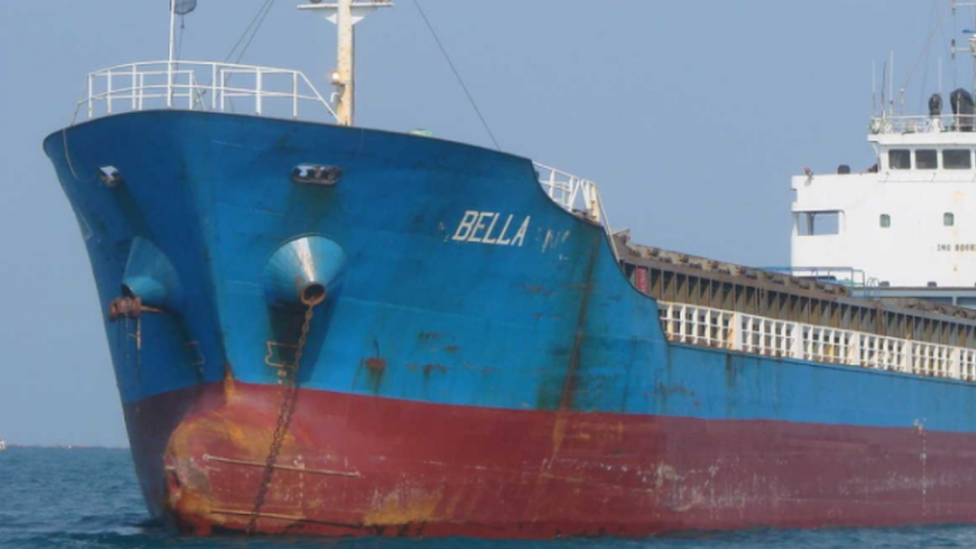
- Published17 June 2020
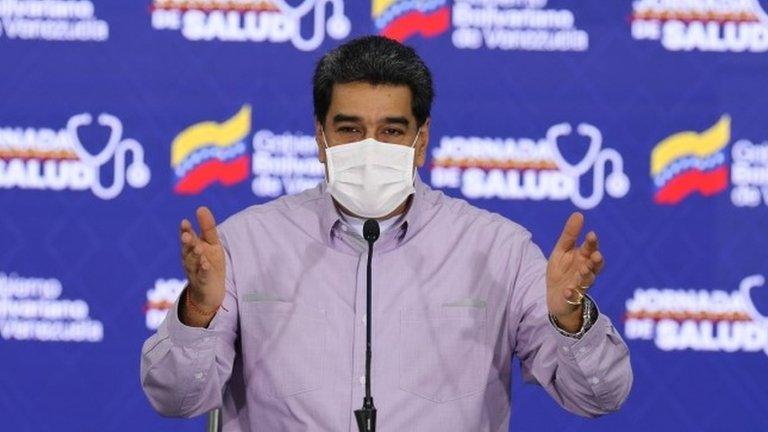
- Published21 May 2020
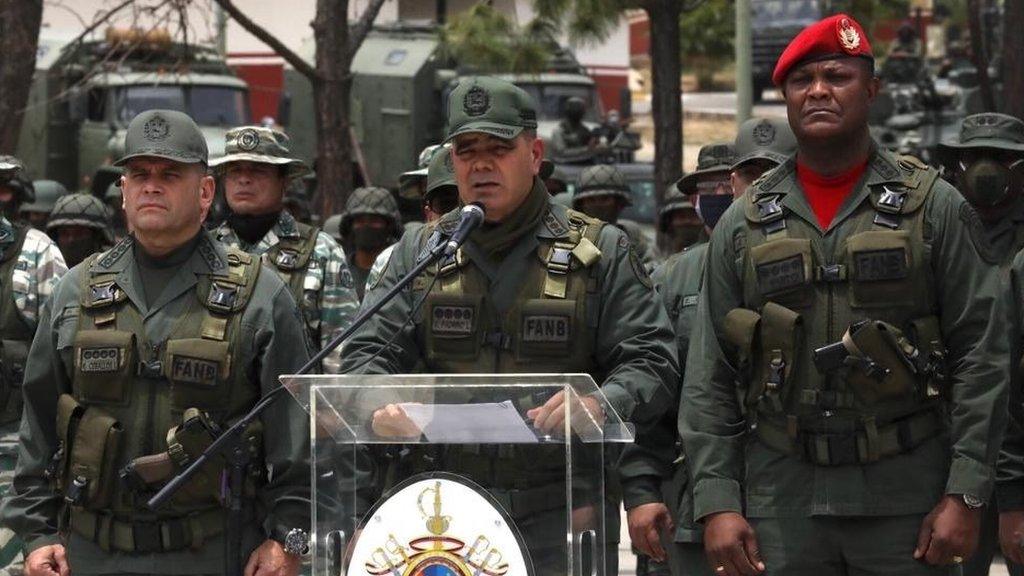
- Published3 May 2020
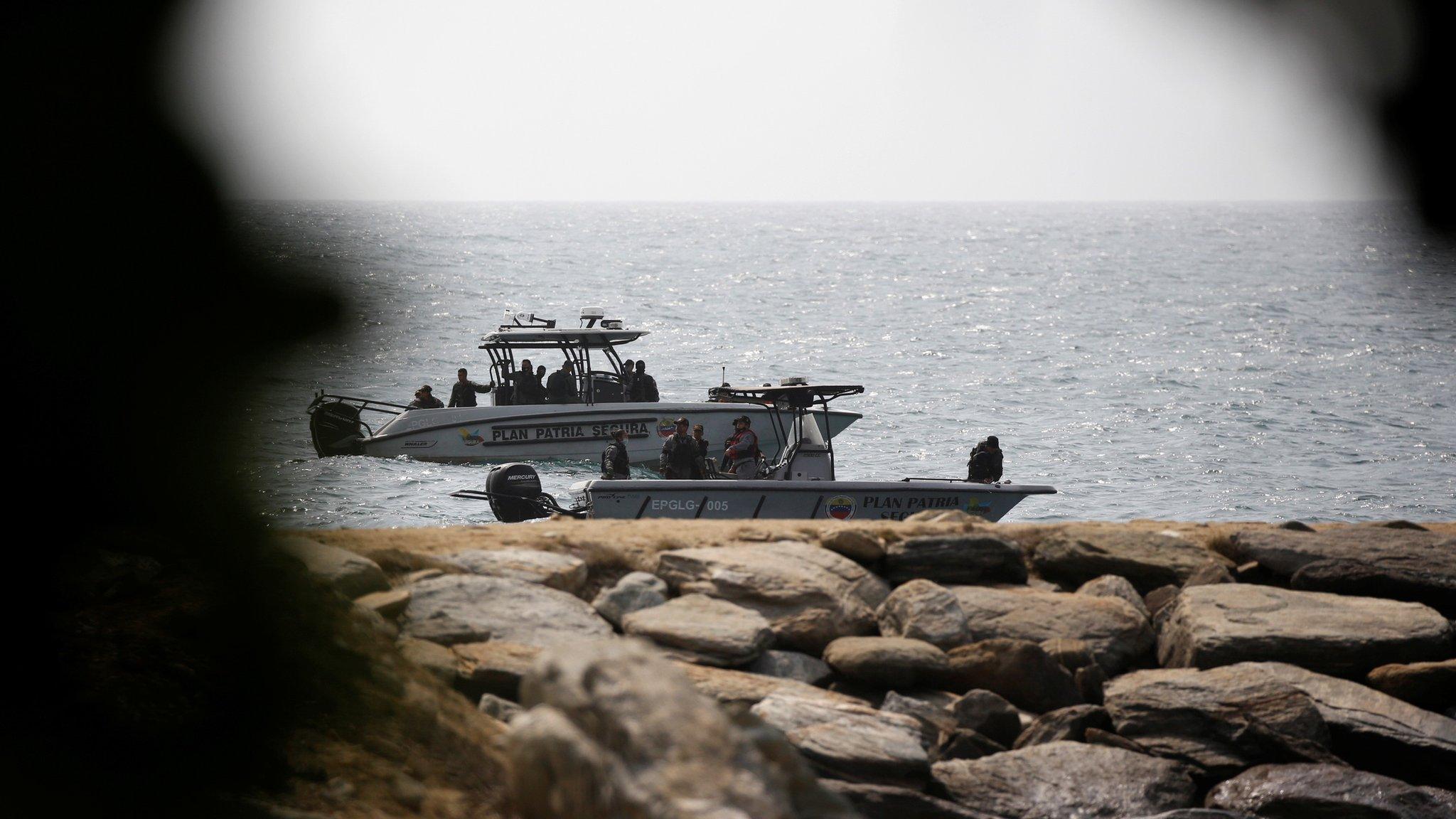
- Published31 March 2020
